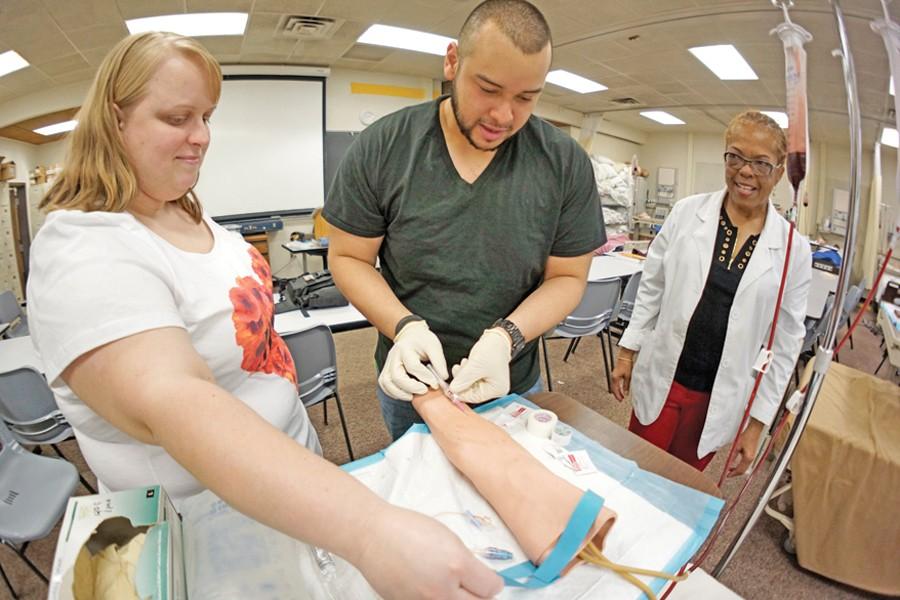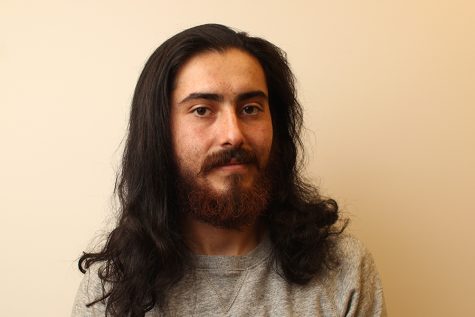Select colleges to pilot career technical education degree programs
In lieu of Senate Bill 850 Chancellor’s Office releases small list of community colleges set to offer CTE Baccalaureate degrees
Feb 3, 2015
The California Community Colleges Chancellor’s Office released a list of colleges that meet the criteria to start a pilot program that would offer baccalaureate degrees in career technical education (CTE) courses.
The Board of Governors made its selections on Jan. 20 in response to Senate Bill 850, legislation sponsored by Sen. Marty Block (D-San Diego) and signed by Gov. Jerry Brown last year.
Out of the 34 applications to be submitted for the CTE pilot program, only 13 were chosen according to a press release from the state Chancellor’s Office.
The selected colleges will undergo review from the Chancellor’s Office, as well as consulting with CSU and UC representatives, before the Board of Governors make a final approval at their March meeting.
Contra Costa Community College District Chancellor Helen Benjamin said the district opted to keep Contra Costa College off the first list of schools offering pilot programs.
“The district pulled (CCC’s) bid for a nursing pilot program from the first round applicants after recommendations from staff and faculty,” Dr. Benjamin said.
The three conditions imposed by SB 850 are the college in review must demonstrate that a local workforce need exists, the local universities cannot meet the need and local community colleges have the capacity to supply that workforce need.
Interim President Mojdeh Mehdizadeh said the recommendations against being in the first group of California community colleges to pursue implementing a CTE pilot program were former CCC president Denise Noldon and Academic Senate President Wayne Organ.
Mehdizadeh and Organ said a major proponent of bringing a CTE baccalaureate degree program was former Nursing Director Marshall Alemieda.
Proponents of SB 850 pushed implementing supervision and management, and nursing programs strongly due to widespread demand from community colleges in other states.
She said because Cal State-East Bay offers a bachelor’s degree in nursing, and is relatively near CCC, competition would be created between the institutions. But because discussions were so focused on nursing when the district decided to pull its application it did not have a back up CTE course to offer.
Benjamin said, “The district cannot simply decide to agree to offer a program without doing research to see if there is a demand in the community.”
She said CCC needs people interested in doing baccalaureate degree research in other CTE disciplines such as information technology, automotive, culinary, early childhood education, business administration and criminal justice, to gauge if there is a demand in the community.
Organ said, “Our district has wisely decided not to be crash test dummies, and let others pave the way.”
Another issue, he said, would be determining who is qualified to teach upper-division courses and adjusting their payroll.
Organ said changing the Minimum Qualifications Handbook would be a challenge. “Should the qualifications be the same for teaching upper division? Perhaps something more rigorous?” he said. “No one knows right now, and we don’t have a process to decide what to do.”
Benjamin said, “All of the work and more needs to be done before applying.”
Automotive technology assistant Jim Gardner, however, said CCC’s automotive department already has the qualified staff, modern garage and student demand needed to take advantage of SB 850.
“It’s a no-brainer for us to get a four-year CTE program in place,” Gardner said. “The closest colleges that offer automotive are (Los Medanos College) and (College of Alameda). And their facilities are not as nice as the one we have (at CCC).”
The pilot program is patterned after community college systems in 22 other states with existing programs attempting to address a possible increase in the skill gaps in the workforce.
The new bill aims to help roughly 210,000 students attain a bachelor’s degree annually, 60,000 more than it currently does, with four-year degrees by 2025.
Nursing professor Angela King- Jones said she is glad the college decided to let other community colleges be the test subjects in this CTE experiment.
Organ said, “There is much wisdom in not being the first to cross the river. If you can get someone else to find out where the sinkholes and rocks are, you will have a better chance to succeed when it is your turn to cross. It may even turn out that this particular river is un-crossable.”



